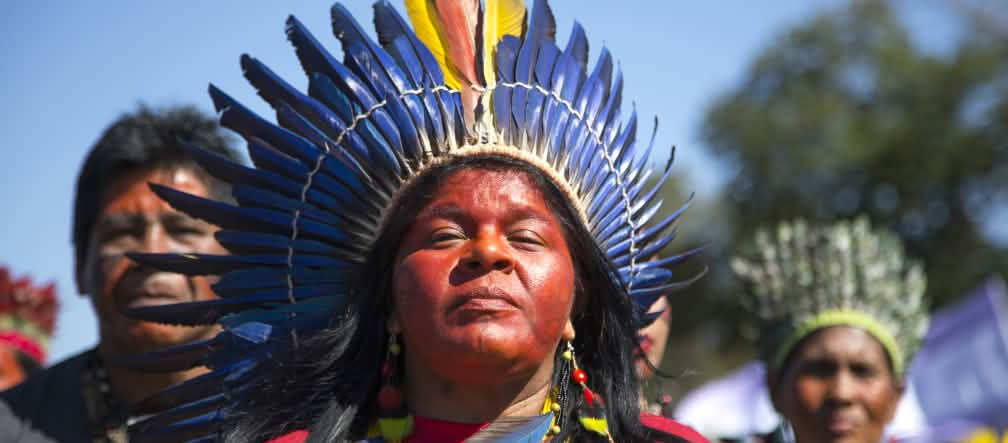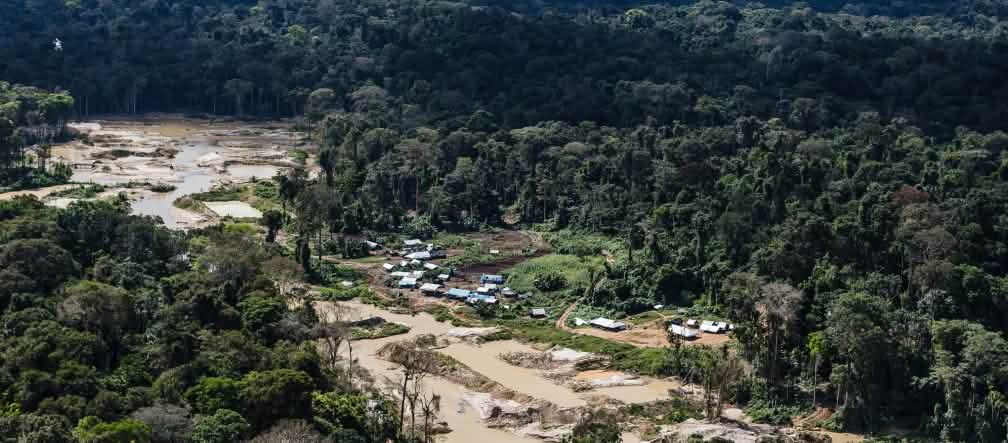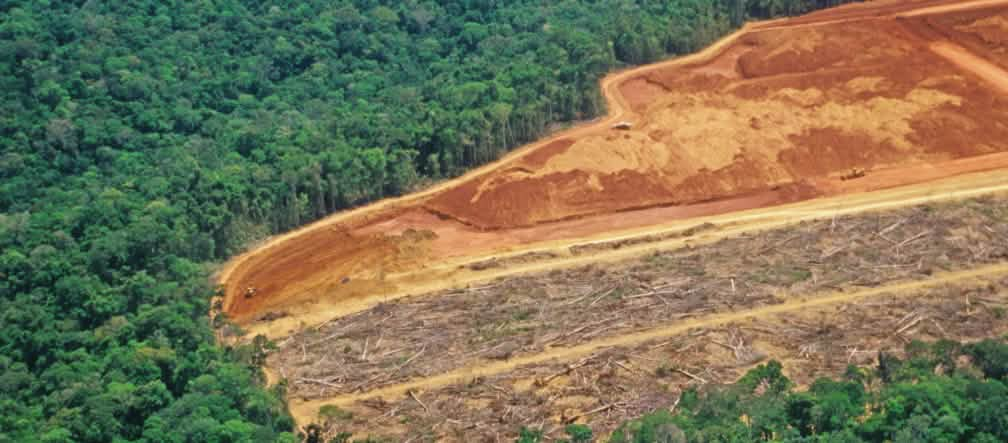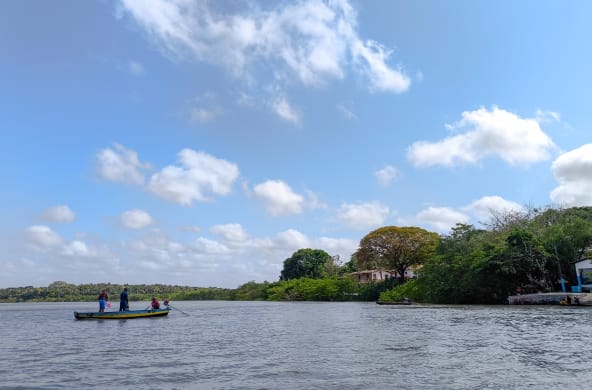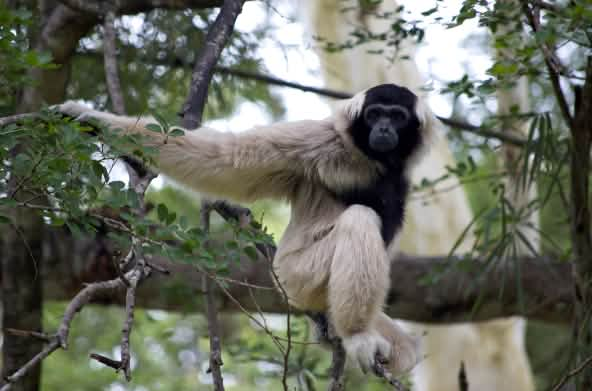Completed campaign
Brazil: Stop the assault on the Amazon rainforest!
A draft law introduced under Brazil's former president Bolsonaro would open up indigenous territories for mining and hydropower projects. A quarter of the Amazon rainforest – an area nearly five times the size of the UK or three times that of California – is at stake.
News and updatesTo: the Brazilian parliament (Chamber of Deputies and Federal Senate), Brazilian government, relevant ministries and agencies
“No mining and no hydroelectric plants in indigenous territories: Reject draft law PL 191/2020!”Draft Law PL 191/2020, which was introduced in parliament by the party of former president Bolsonaro, continues to threaten a total of 1.17 million km² of state-recognized and demarcated indigenous territories. This will open up areas nearly five times the size of the UK or three times the size of California for mining and hydropower projects.
Indigenous communities and their umbrella organization APIB strongly oppose the draft law, pointing out that it is unconstitutional and a clear violation of the rights of indigenous peoples.
On March 9, 2022, the Brazilian parliament pushed the draft law through as a matter of special urgency.
Former president Bolsonaro justified the plan with the war in Ukraine and the resulting shortage of potash fertilizer, endangering the cultivation of soy, sugar cane and coffee.
Brazilian organizations criticize this as a pretext, pointing out that there are no potash deposits in the indigenous areas. In reality, Bolsonaro was interested in opening indigenous territories to economic exploitation. His aim is to legalize the mining of gold, bauxite, rare earths and minerals.
20,000 illegal prospectors have already invaded the indigenous Yanomami lands, while 442 gold mines can be found on Munduruku lands. The miners destroy ecosystems and pollute rivers with mercury – and bring with them alcohol, drugs, prostitution, crime and disease.
Indigenous territories are crucial for people and nature: With their sustainable way of life, indigenous people preserve the rainforests better than government-managed protected areas and defend them against timber, mining and agricultural companies, as a United Nations report has confirmed.
Please sign our petition and support the indigenous peoples' call for help!
The legal text for PL 191/2020 was introduced to parliament in 2020 by the then Environment Minister Moro, but was rejected at the time. In June 2021, the Federal Ministry of Public Affairs declared the draft law to be unconstitutional.
Indigenous peoples and nature face and immediate threat from four other draft laws pending in the Chamber of Deputies (Câmara dos Deputados do Brasil) and in the Federal Senate (Senado Federal do Brasil).
- PL 490/2007, which aims to prevent the demarcation and legal recognition of further indigenous territories;
- PL 6,299/2002, which aims to make the use and approval of pesticides more flexible;
- PL 2,633/2020, which would facilitate the appropriation and theft of land;
- PL 2,159/2021, which aims to weaken environmental protection and environmental licenses.
A group of famous Brazilian artists such as Caetano Veloso, Paula Lavigne and Daniela Mercury held a large open-air concert and event in the capital Brasilia and handed over a manifesto to the Senate President on March 9, 2022, demanding the rejection of the "destructive package of draft laws".
According to Brazilian media, around 50 mining projects in indigenous territories have already been approved by the Bolsonaro government.
In Brazil and worldwide, indigenous people play a crucial role in protecting nature. In Brazil, 567 indigenous territories covering an area of 1.17 million square kilometers – almost a quarter of the Brazilian Amazon – have been recognized so far. Recognition has been requested for an additional 117 territories. As a rule, indigenous people protect their territories and the nature found there much more effectively than state-operated rainforest protection areas, as the United Nations (UN) found in a study.
Further information:
- Reginatto, A.C., Wanderley, L.J. (2022). Quem é quem no debate sobre mineração em Terras Indígenas. Publicação do Comitê Nacional em Defesa dos Territórios Frente à Mineração em conjunto a Articulação dos Povos Indigenas do Brasil - APIB: http://emdefesadosterritorios.org/lancamento-quem-e-quem-no-debate-sobre-mineracao-em-terras-indigenas/
Article 231 of the Brazilian Federal Constitution of 1988 reads as follows:
Art. 231: Indigenous peoples are accorded their social organization, customs, languages, beliefs and traditions, as well as original rights over the lands they traditionally occupy, with the Union being responsible for delimiting them and protecting and enforcing respect for all their properties.
Section 1: The traditional lands of indigenous peoples are those they continuously inhabit and use for their productive activities, which is indispensable for the conservation of environmental resources necessary for their well-being and necessary for their physical and cultural reproduction, according to their customs, mores and traditions.
Section 2: The lands traditionally inhabited by indigenous peoples are their lasting possession, and the exclusive use of the riches of the soil, rivers and lakes that exist there is theirs.
Section 3: The exploitation of water resources, including energy potentials, and the exploration and extraction of mineral resources on indigenous lands may only be carried out with the authorization of the Brazilian parliament and after consultation with the affected communities, who must be guaranteed a share in the proceeds thereof in accordance with the law.
Section 4: The lands referred to in this article and the rights thereto are inalienable.
Section 5: The expulsion of indigenous groups from their lands is prohibited, except ad referendum of the Brazilian parliament in the case of a disaster or epidemic that threatens their population, or in the interest of the sovereignty of the country, after consultation of the Brazilian parliament, guaranteeing in any case their immediate return once the danger has passed.
Section 6: Acts aimed at occupying, owning and possessing the lands referred to in this article or exploiting the natural riches of the land, rivers and lakes present thereon are null and void and have no legal effect, unless there is a relevant public interest of the Union [the 26 states, the federal district and the 5,570 municipalities], as provided for in a supplemental statute, and such nullity and termination shall not create any right to compensation or action against the Union, except as provided by law, in relation to the improvements resulting from the bona fide occupation.
Section 7: The provisions of Art. 174, Section 3 and Section 4 do not apply to indigenous lands.
Presidência da República, Casa Civil, Subchefia para Assuntos Jurídicos. Constituição da República Federativa do Brasil de 1988: http://www.planalto.gov.br/ccivil_03/constituicao/constituicao.htm
To: the Brazilian parliament (Chamber of Deputies and Federal Senate), Brazilian government, relevant ministries and agencies
Ladies and Gentlemen,
We declare our solidarity with the indigenous communities in Brazil and support the analysis and demands of the Association of Indigenous Peoples of Brazil (APIB) 1) stating that Draft Law PL 191/2020 is both formally and materially unconstitutional.
The draft law violates the right to free, prior and informed consultation and consent of indigenous peoples and also contradicts Article 231 of the 1988 Brazilian Federal Constitution.
The draft law has no legal basis as it blatantly violates the rights of indigenous peoples. It seeks to allow unconstitutional and improperly timed mining activities in the country's indigenous territories, endangering the lives of indigenous peoples, including isolated indigenous peoples.
We therefore urge you to reject Draft Law PL 191/2020.
Yours faithfully,
1) See Articulação dos Povos Indígenas do Brasil (APIB) (Mar. 11, 2022). Nota Técnica sobre o PL 191/2020: https://apiboficial.org/2022/03/18/nota-tecnica-sobre-o-pl-1912020/ und https://apiboficial.org/files/2022/03/NOTA-DA-APIB-PL-191.docx.pdf
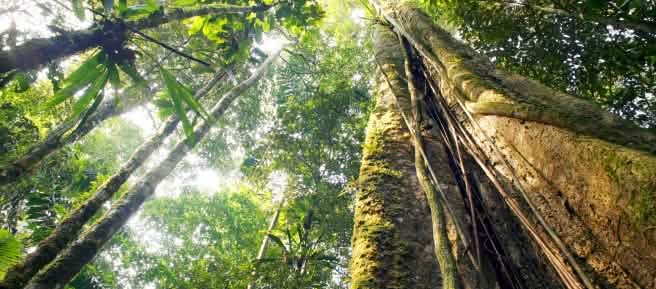
How much rainforest was cleared in 2021? According to the University of Maryland, the world lost 11.1 million hectares of forest in tropical regions. The development was particularly alarming in Brazil and the Democratic Republic of the Congo. The biggest drivers of destruction are logging, the expansion of agriculture and mostly set fires.
Oak, maple or pine – with a little practice, anyone can identify the most common tree species in Europe or North America. That would be virtually impossible in the mind-boggling diversity of the tropics, however. A new study concludes that an estimated 73,300 tree species exist on Earth, with 9,200 of them still undiscovered by science.
Draft Law PL 191/2020Cámara dos Diputados (no date): PL 191/2020 Projeto de Lei: https://www.camara.leg.br/proposicoesWeb/fichadetramitacao?idProposicao=2236765
umbrella organization APIBArticulação dos Povos Indígenas do Brasil (APIB) (March 11, 2022). Nota Técnica sobre o PL 191/2020: https://apiboficial.org/2022/03/18/nota-tecnica-sobre-o-pl-1912020/ und https://apiboficial.org/files/2022/03/NOTA-DA-APIB-PL-191.docx.pdf
Brazilian organizationsInstituto Socioambiental (March 9, 2022). Bolsonaro mente sobre potássio em terras indígenas: https://www.socioambiental.org/pt-br/blog/blog-do-ppds/bolsonaro-mente-sobre-potassio-em-terras-indigenas
as the United Nations also confirmsRainforest Rescue: UN report: indigenous people are the best forest guardians (March 31, 2021): https://www.rainforest-rescue.org/updates/10177/un-report-indigenous-people-are-the-best-forest-guardians
